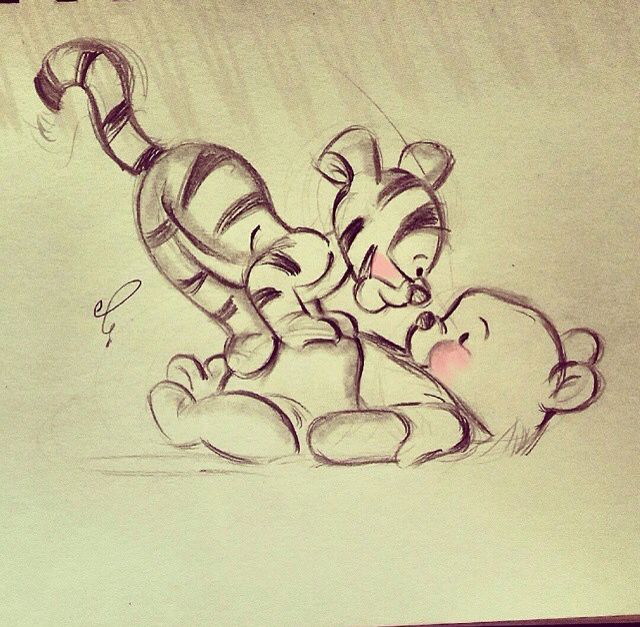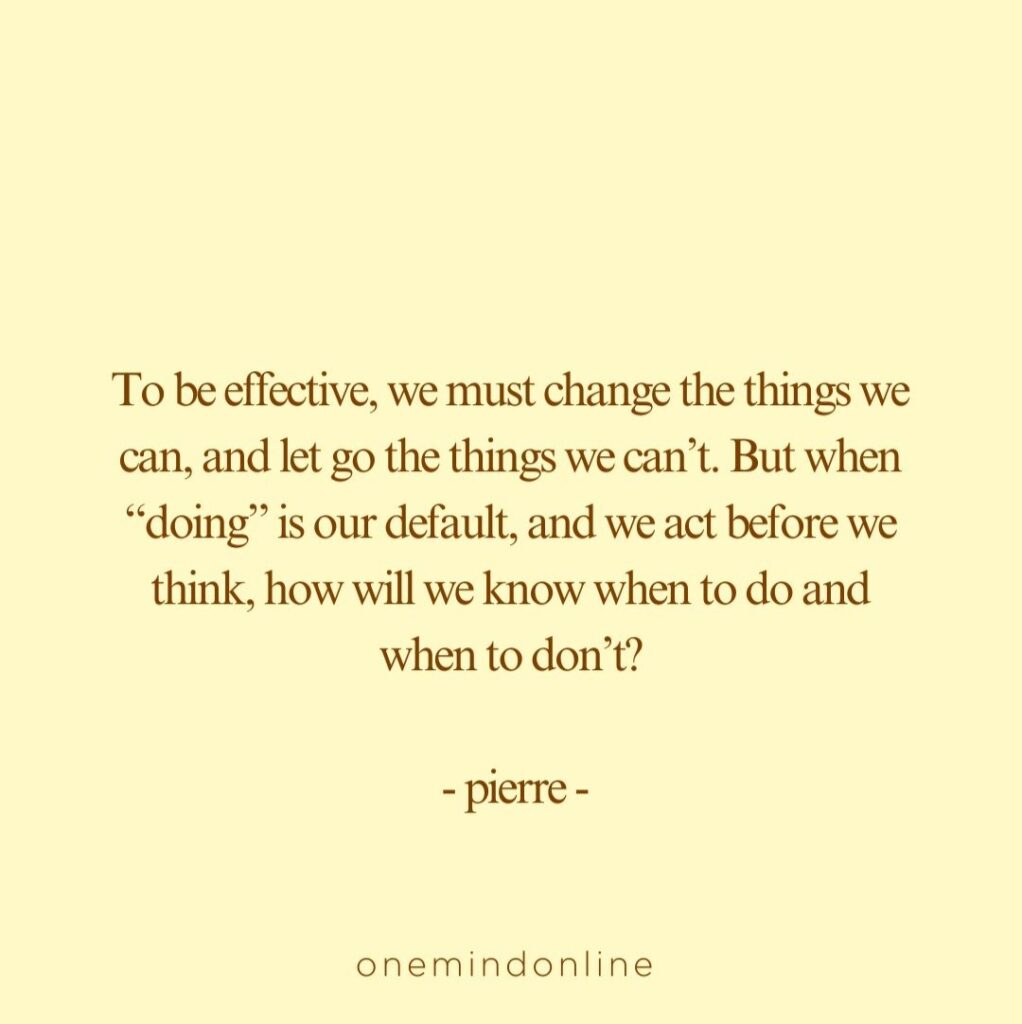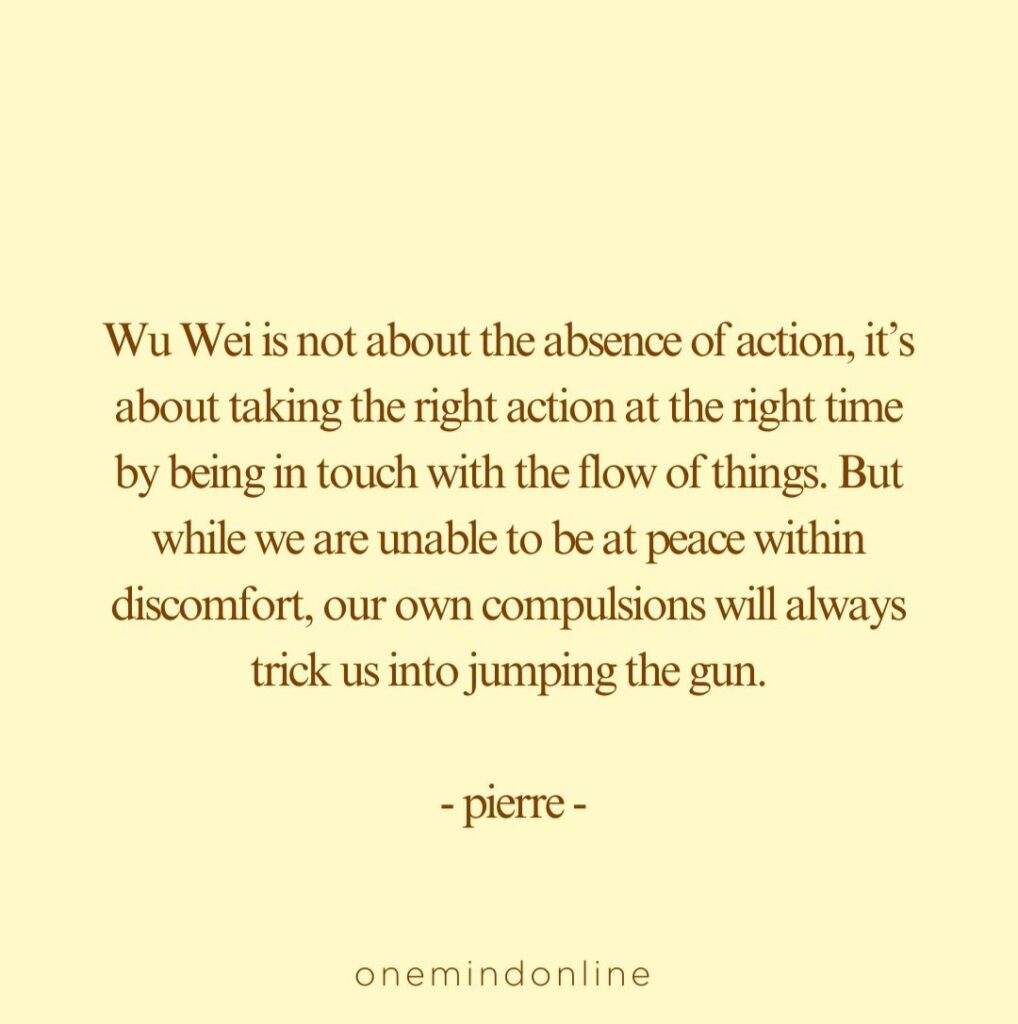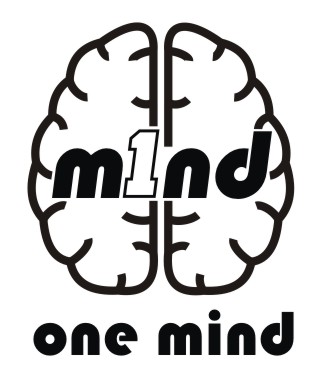
Get ready to be inspired in just about the time it takes to brew a cup of tea (about 2 minutes)! And if you’ve got your feet up and that tea’s still hot, we’ve got a whole buffet of brilliance waiting for you on our menu.
A message from today’s meditation:
As you may already know, this week’s teachings come from the book “The Tao of Pooh”. An adaptation of the original Winnie the Pooh that recognizes the Zen-like qualities of this yellow bear. Here is the next excerpt from the book –
Tigger is the bouncy one, always on the move! No time for a second’s rest, there’s too much to be done!
Living this way is exhausting though, and finally Tigger turns to Pooh for advice:

Tigger asked “Just How do you do it, Pooh?”
“Do What?” asked Pooh.
“Become so Effortless.”
“I don’t do much of anything,” he said.
“But all those things of yours get done.”
“They just sort of happen,” he said.
– The Tao of Pooh
Pooh bear didn’t study in order to be like this, this is just his way. But if he were a student of Lao Tzu, this is how he might describe his way of being:
“When we learn to work with our own Inner Nature, and with the natural laws operating around us, we reach the level of Wu Wei. Then we work with the natural order of things and operate on the principle of minimal effort. Since the natural world follows that principle, it does not make mistakes. Mistakes are made–or imagined–by man, the creature with the overloaded Brain who separates himself from the supporting network of natural laws by interfering and trying too hard.
When you work with Wu Wei, you put the round peg in the round hole and the square peg in the square hole. No stress, no struggle. Egotistical Desire tries to force the round peg into the square hole and the square peg into the round hole. Cleverness tries to devise craftier ways of making pegs fit where they don’t belong. Knowledge tries to figure out why round pegs fit into round holes, but not square holes. Wu Wei doesn’t try. It doesn’t think about it. It just does it. And when it does, it doesn’t appear to do much of anything. But Things Get Done.
When you work with Wu Wei, you have no real accidents. Things may get a little Odd at times, but they work out. You don’t have to try very hard to make them work out; you just let them. […] If you’re in tune with The Way Things Work, then they work the way they need to, no matter what you may think about it at the time. Later on you can look back and say, “Oh, now I understand. That had to happen so that those could happen, and those had to happen in order for this to happen…” Then you realize that even if you’d tried to make it all turn out perfectly, you couldn’t have done better, and if you’d really tried hard, you would have made a mess of the whole thing.
Using Wu Wei, you go by circumstances and listen to your own intuition. “This isn’t the best time to do this. I’d better go that way” – like that. When you do that sort of thing, people may say you have a Sixth Sense or something. All it really is, though, is being Sensitive to Circumstances. That’s just natural. It’s only strange when you don’t listen.”
– The Tao of Pooh
To be effective, we must change the things we can, and let go the things we can’t. But when “doing” is our default, and we act before we think, how will we know when to do and when to don’t?
Wu Wei is not about the absence of action, it’s about taking the right action at the right time by being in touch with the flow of things. But while we are unable to be at peace within discomfort, our own compulsions will always trick us into jumping the gun.
Today’s meditation is an exercise for our minds to wait and to watch and to see… see where to do and where to don’t.
Here are some affirmations to help you cultivate Wu Wei:
- “When I can find peace in discomfort, I am free to choose the right action at the right time.”
- “My effort is aligned, not forced – I allow things to unfold in their own time.”
- “I trust wisdom to guide me when to do, and when to don’t.”
- “Stillness is not inaction; it is wise observation.”
By cultivating a sense of Wu Wei, we can navigate life’s complexities with greater ease and grace. Like Pooh Bear, we can accomplish much, seemingly effortlessly, by aligning ourselves with the natural rhythm of the universe.
So, the next time you feel the urge to jump into action, take a moment to breathe, observe, and listen to your inner voice. Perhaps the answer lies not in doing, but in allowing.
Have a beautiful day, and do join us for today’s meditation journey.
– pierre –
Today’s LIVE meditation is: I am the mountain.
(credit: https://www.benjaminhoffauthor.com/ )
A moment of reflection
(If you have the time, use this question as a journal prompt, because whenever you put pen to paper you’re wiring the neural pathways that create your new habits. But if you don’t have the time, just take a moment to reflect on your response.)
The article contrasts Tigger’s constant activity with Pooh’s seemingly effortless way of being through Wu Wei. Reflect on a time in your life when you felt like Tigger – driven to constant “doing.” What was that experience like? Now consider a time when things seemed to “just sort of happen” for you, perhaps aligning with the principle of Wu Wei. What were the key differences in your mindset and approach between these two experiences?
Today’s LIVE meditation



Q&A for deeper learning
1. What is Wu Wei as described in the article?
According to the article, Wu Wei is about working with your own Inner Nature and natural laws, reaching a level of minimal effort where things “just sort of happen.” It involves aligning with the natural order, like putting the round peg in the round hole without stress or struggle.
2. The article mentions Tigger and Pooh. How do they illustrate the concept of Wu Wei?
Tigger represents constant activity and the feeling of needing to do a lot, which can be exhausting. Pooh, on the other hand, embodies Wu Wei by being effortless; things get done without him seeming to do much. Tigger asks Pooh how he achieves this effortless state.
3. Is Wu Wei simply about doing nothing?
No, the article explicitly states, “Wu Wei is not about the absence of action, it’s about being in touch with the flow of things.” It’s about taking the right action at the right time in alignment with circumstances and intuition, rather than forcing or overthinking.
4. How can we know when to act and when to refrain from action, according to the article?
The article suggests cultivating the ability to “wait and to watch and to see.” It emphasizes being sensitive to circumstances and listening to your intuition to discern the appropriate course of action, which sometimes might be no action at all.
5. What role does our “overloaded Brain” play in moving away from Wu Wei?
The article suggests that our tendency to overthink, interfere, and try too hard separates us from the natural flow of things and the principle of minimal effort. This “overloaded Brain” can lead to mistakes and a feeling of struggle.
6. How does the article suggest we can start to cultivate a sense of Wu Wei in our lives?
The article encourages us to pause before acting, to breathe, observe, and listen to our inner voice. It also prompts self-reflection with questions like “Am I forcing this situation?” and “Am I listening to my intuition?”
7. What is the benefit of living more in accordance with Wu Wei?
The article suggests that by cultivating Wu Wei, we can navigate life’s complexities with greater ease and grace. We can accomplish much, seemingly effortlessly, by aligning ourselves with the natural rhythm of the universe, and even when things seem odd, they tend to work out.
